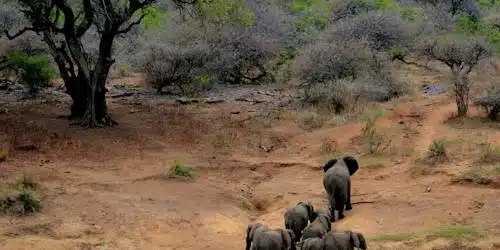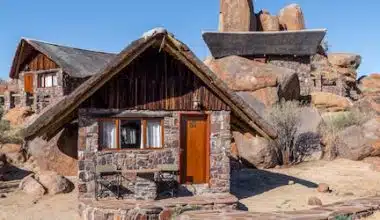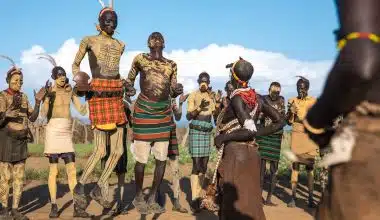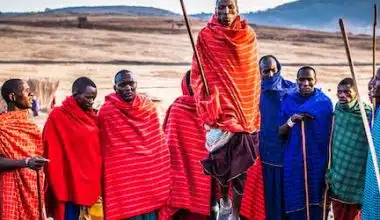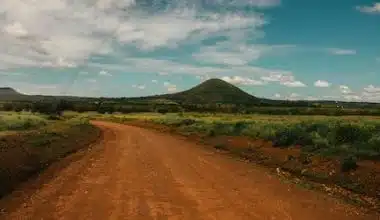Most people’s travel bucket lists include an African safari vacation, but how do you decide which of the continent’s amazing wildlife destinations to visit for the greatest safari in Africa?
Your decision will be based on what you want to see in the wild, the kind of safari vacation you want (walking, game drives, camping, luxury), and the people you travel with, particularly if you need an accessible safari vacation or are planning a safari with children.
One of the greatest and safest travel experiences in 2024 is an African safari, which also directly contributes to the preservation of animals, habitats, jobs in rural communities, and the education of African youth.
The Best Safari in Africa
Africa is a popular safari destination because of its amazing wildlife and varied terrain. These locations provide a variety of safari experiences, ranging from hiking with gorillas to visiting exclusive conservancies and isolated wilderness regions. Everyone has a different chance to experience Africa’s amazing wildlife and breathtaking scenery.
These are Africa’s best safari experiences:
#1. Kruger National Park, South Africa
One of the most well-liked safari places in Africa is Kruger National Park, which is situated in the extreme northeast of South Africa. It provides excellent opportunities for observing animals, including close-up views of leopards. Excellent tourist infrastructure, including decent roads for self-driving safaris, is present in the park.
#2. Etosha National Park, Namibia
Namibia’s Etosha National Park is renowned for its unusual salt pans and profusion of wildlife. It provides fantastic chances to see wildlife, including lions, rhinos, and elephants. The park offers a variety of lodging alternatives, from luxurious hotels to campsites, as well as well-maintained roadways.
#3. Serengeti National Park, Tanzania
The yearly migration of millions of wildebeest across the plains in search of new pastures is the reason behind the park’s fame as Serengeti National Park. Numerous animals can be found there, such as elephants, cheetahs, and lions. The park offers walking safaris in addition to traditional safaris, giving visitors a different angle on the scenery and wildlife.
#4. Okavango Delta, Botswana
The immense marshes and canals of the Okavango Delta make it a unique safari location. Many animal species, including hippos and elephants, as well as numerous bird species, call it home. By traditional mokoro (dugout canoe) or on escorted walking safaris, visitors can explore the delta.
#5. Masai Mara National Reserve, Kenya
The legendary Big Five (elephant, lion, leopard, buffalo, and rhino) are among the many species of animals that abound in the Masai Mara National Reserve. Moreover, it’s a great place to see the yearly migration of wildebeest, which originates in the Serengeti and moves throughout Africa.
#6. South Luangwa National Park, Zambia
The South Luangwa National Park is renowned for its abundant wildlife and unspoiled nature. It provides fantastic chances for walking safaris, which let guests explore the park on foot and get up close and personal with wildlife. Numerous species of animals, such as elephants, giraffes, and leopards, can be seen in the park.
#7. Chobe National Park, Botswana
Elephants abound in Chobe National Park, where herds can frequently be spotted along the Chobe River. The park provides a variety of safari experiences, such as walking safaris, boat cruises, and game drives. Elephants crossing a river present a fascinating scene for visitors to see.
#8. Hwange National Park, Zimbabwe
Zimbabwe’s largest national park, Hwange, is renowned for its varied fauna, which includes enormous herds of elephants and a wide range of predators. From walking safaris to game drives, the park provides a variety of safari experiences. Additionally, guests can stay in opulent hotels or tented campers.
#9. Ngorongoro Conservation Area, Tanzania
The world’s biggest intact volcanic caldera, the Ngorongoro Crater, is located within the Ngorongoro Conservation Area, a UNESCO World Heritage Site. It provides amazing chances for animal viewing, one of which is the Big Five sighting. Additionally, the crater serves as a refuge for threatened species like black rhinos.
#10. Kidepo Valley National Park, Uganda
One of Africa’s few unspoiled wilderness places is Kidepo Valley National Park, which is situated in the isolated northeastern part of Uganda. With a wide variety of animals, such as lions, elephants, giraffes, and several antelope species, it provides a rough and genuine safari experience. The park boasts stunning scenery, including expansive savannahs and craggy mountains.
Trip to Safari in Africa
Regardless of your safari interests, the magnificent African continent has plenty to offer you. You’ll encounter amazing cultures and landscapes, and you’ll be able to see nature everywhere you go.
An African safari can be a once-in-a-lifetime experience that gives you the chance to witness a wide variety of wildlife, breathtaking scenery, and the rich cultural diversity of the region.
Here are some things to think about when organizing an African safari:
#1. African Safari Packages and Tours
Africa offers a wide range of safari packages and vacations to suit all tastes and price ranges. These packages include anything from ultra-luxurious trips to bucket-list excursions.
#2. Destinations
There are many different safari locations in Africa, and each has its distinct animals and scenery. South Africa, Tanzania, Kenya, Botswana, Zambia, and Namibia are among the popular safari locations.
#3. Safari Activities
A variety of activities are available through safaris to discover Africa’s wildlife and scenic splendor. Game drives, guided hikes, birdwatching, boat safaris, hot air balloon flights, and cultural trips to nearby settlements are a few examples of these activities.
#4. Wildlife
Africa is well-known for its wide variety of animals, which includes the “Big Five” (buffalo, lion, leopard, elephant, and rhinoceros). Still, there’s plenty more to view, including crocodiles, hippos, zebras, giraffes, and cheetahs. The type of wildlife you see will vary depending on where and when you go.
#5. Best Time to Visit
The ideal time to go on a safari in Africa may depend on the particular location and the animals you hope to see. Since animals congregate around water sources during the dry season (winter months), this is generally thought to be the best time to watch wildlife. The summertime, or wet season, can, nevertheless still provide unforgettable experiences, such as witnessing the wildebeest migration in the Serengeti.
#6. Safari Lodges and Accommodation
For safari travel, a variety of lodging choices are available, from affordable options to opulent hotels and tented camps. These lodgings frequently have cozy amenities and are positioned well to observe animals.
#7. Safari Packing List
The right packing is essential when getting ready for a safari. Lightweight and comfortable clothing, a wide-brimmed hat, sunscreen, bug repellent, binoculars, a camera, and sturdy walking shoes are a few necessities to take into account. It’s also a good idea to refer to a thorough safari packing list and confirm the destination’s specific packing requirements.
#8. Safety and Travel Considerations
It’s crucial to think about travel regulations and safety measures before going on a safari. Checking travel advisories, getting the required vaccinations, and making sure you have the right travel insurance are all advised. It’s also a good idea to make reservations with reliable tour operators and heed the advice of knowledgeable guides while on safari.
Safari in Africa Kenya
Kenya is one of the best places in Africa to go on safari because of its amazing wildlife. Going on a safari in Kenya gives you the chance to see amazing wildlife, breathtaking scenery, and the vibrant national culture. In the middle of the African bush, you can make lifelong memories with careful planning and the assistance of skilled guides.
Features of an African safari
#1. Wildlife
A wide variety of wildlife can be found in Kenya. The nation’s national parks and reserves, like Amboseli, Tsavo, Maasai Mara, and Samburu, provide fantastic chances to see these magnificent animals in their native environments.
#2. Safari Tours and Packages
Kenya offers a wide range of safari excursions and packages to suit various budgets and tastes. Experienced tour leaders with in-depth knowledge of the local wildlife and ecosystems frequently lead these excursions. Based on your preferences and intended animal sightings, they can assist in creating a personalized plan.
#3. Video Games
A favorite pastime in Kenya during a safari is going on a game drive. With the help of these guided tours, you can get up close and personal with the animals as you go through the national parks and reserves in specially adapted 4×4 vehicles. Since animals are most active in the early morning and late afternoon, these are the times when game drives are typically held.
#4. Great Migration
Among Kenya’s most breathtaking wildlife spectacles is the Great Migration. Millions of wildebeests, zebras, and other herbivores travel every year between Tanzania’s Serengeti National Park and Kenya’s Maasai Mara in search of new grazing. One of the highlights of many safaris in Kenya is witnessing this natural phenomenon.
#5. Accommodation Options
Safari travelers can choose from a variety of lodging options in Kenya, including affordable campsites, opulent lodges, and tented camps. Giraffe Manor is one of the unusual resorts that offers an opportunity to engage with giraffes.
#6. Best Time to Visit
The ideal time to go on a safari in Kenya may depend on the kind of wildlife you hope to see. The dry season, which lasts from June to October, is usually thought to be the greatest time to see wildlife because of the concentration of animals around water sources. But other months also provide memorable experiences; for example, January to March is Maasai Mara’s calving season.
#7. Packing Advice
Packing properly is essential while getting ready for a safari in Kenya. Lightweight and comfortable clothing, a wide-brimmed hat, sunscreen, bug repellent, binoculars, a camera, and sturdy walking shoes are a few necessities to take into account. Your belongings will stay more organized if you use packing cubes for the trip.
#8. Health and Safety Factors
Check the most recent travel advisories and speak with your doctor about any recommended immunizations and prescriptions before departing for Kenya. Having travel insurance that covers medical situations is also advised.
Hunting Safari in Africa
For individuals who are interested in morally and responsibly hunting, an African hunting safari can be a fun and unforgettable experience. Selecting a hunting safari operator with a good reputation and a destination that suits your interests is the best option. It’s crucial to comprehend hunting laws, acquire permits, and place an emphasis on safety and ethical hunting methods.
The features of a hunting safari in Africa include:
#1. Safari Packages for African Hunting
Africa offers a wide range of hunting safari packages with varying game species, lodging options, and lengths of stay. These packages are frequently made to offer an all-inclusive hunting experience while abiding by morally and environmentally responsible hunting methods.
#2. Game Animals
Many different game species in Africa can be ethically and lawfully hunted. Numerous antelope species, buffalo, lions, leopards, elephants, crocodiles, and other animals are among these species. Certain game species may not be available in a given nation or hunting region.
#3. Hunting Grounds
Hunting is permitted in several African nations in places that have been set aside for the purpose, including concessions, private game reserves, and conservancies. The management of these areas upholds sustainable hunting practices and conservation initiatives. Africa’s top hunting locations are Mozambique, Zimbabwe, Tanzania, Namibia, and South Africa.
#4. Hunting Licenses and Regulations
Hunting safaris in Africa are subject to regulations and demand permission. You must become acquainted with the hunting laws of the nation you intend to visit and secure the required licenses and permits. To guarantee adherence to regional laws and regulations, it is essential to collaborate with respectable outfitters and expert hunters.
#5. Professional Hunters and Outfitters
A professional hunter (PH) or guide is usually with you when going on a hunting safari in Africa. These seasoned hunters are well-versed in the area’s fauna, shooting strategies, and safety precautions. They are essential to making sure that hunting is both effective and safe.
#6. Accommodations
In Africa, hunting safaris frequently provide cozy lodging options, from opulent resorts to tented camps. These lodgings, which are typically located in or close to the hunting grounds, offer convenience and immersion in the African bush. The particular lodgings could change based on the hunting package and location.
#7. Cost
A hunting safari in Africa can range in price based on several variables, including the kind of animals hunted, the length of the safari, the lodging, and the amenities offered. It is a good idea to look into and contrast various hunting packages to select one that fits your needs and tastes.
#8. Sustainable and Ethical Hunting
In Africa, ethical hunting methods are crucial for maintaining ecosystem health and animal preservation. Strict ethical rules are frequently followed by African hunting safaris, which emphasize ethical hunting practices such as sustainable hunting, fair pursuit ethics, and use of capture
Luxury Safaris in Africa
An African luxury safari offers a posh and exclusive experience, fusing superb animal encounters with opulent lodging and attentive care. This offers an exceptional chance to fully appreciate the splendor of the African landscape while savoring the best lodging and amenities available.
These are the attributes and advantages that a luxury safari in Africa offers.
#1. Luxury Safari Resorts
Many different types of luxurious safari lodges in Africa offer excellent lodging and facilities. These lodges provide breathtaking vistas and a feeling of seclusion while frequently blending in perfectly with the surrounding natural environment. Singita Lodges, Royal Malewane in South Africa, Abu Camp in Botswana, and Tswalu in South Africa are a few of the continent’s well-known luxury safari lodges.
#2. Magnificent Wildlife Experiences
Africa’s luxury safaris provide chances to see amazing wildlife up close. During game drives and hikes, knowledgeable trackers and guides accompany visitors, sharing extensive knowledge about the animals and their environments.
#3. Exclusive Game Reserves
Due to visitation limits, luxury safaris frequently take place in private game reserves or concessions, guaranteeing a more personal and exclusive experience. Prioritizing conservation over tourism, these reserves provide a better opportunity to see wildlife without the throngs of people who frequent regular national parks.
#4. Tailored Services
Africa’s luxury safaris take great satisfaction in offering individualized care and attention to detail. Every element of the safari is customized to the visitors’ tastes and desires, from gourmet meals and personal butlers to spa services and unique activities.
#5. Unique Activities
A variety of distinctive activities are available on luxury safaris to improve the experience. These could include night drives, guided bush walks, hot air balloon rides over the savannah, cultural tours to nearby towns, and even lessons on animal photography. Through these exercises, one can gain a greater comprehension of the African bush and its people.
#6. Sustainability and Conservation
Sustainable practices and conservation are often the main priorities of luxury safaris in Africa. Numerous lodges assist their local communities, actively participate in conservation efforts, and carry out eco-friendly projects. During their safari, visitors can discover conservation initiatives and contribute to the preservation of wildlife.
#7. Destinations Spot
Luxury safari destinations may be found throughout Africa, each with its own distinct fauna and landscapes. South Africa, Kenya, Tanzania, Botswana, Namibia, and Zimbabwe are among the most frequently visited places. Guests can select a destination according to their tastes, as each one offers a unique combination of experiences and lodging.
#8. Tips for Packing
It’s crucial to carry sensible items for an opulent safari in Africa. It is imperative to pack light, comfortable clothing, a wide-brimmed hat, sunscreen, insect repellant, binoculars, and a camera. It is advisable to include some smart-casual clothing as well, as some lodges have dress codes for supper.
How Many Safaris Are There in Africa?
Africa’s safari population varies according to the individual countries, parks, and private reserves. Numerous national parks, wildlife reserves, and private concessions that provide safari experiences can be found throughout Africa. Eleven countries and over 157 parks have been considered. The Serengeti National Park in Tanzania, the Kruger National Park in South Africa, the Maasai Mara in Kenya, the Etosha National Park in Namibia, and many more are popular safari locations in Africa. These locations provide amazing scenery, a wide variety of wildlife, and outstanding safari experiences.
Where Is the Safari Country in Africa?
Multiple countries in Africa provide safari experiences. Kenya, Tanzania, South Africa, Botswana, Namibia, Zimbabwe, Uganda, Rwanda, Zambia, and Mozambique are a few of the African nations that are well-known for safari travel. Every nation has distinct wildlife, scenery, and safari experiences. Visitors can explore the African wilderness and enjoy wildlife encounters in these countries’ national parks, game reserves, and private concessions. Safaris can differ in quality and availability between nations, as well as within sections of the same nation.
How Much Does an African Safari Trip Cost?
The destination, length of stay, caliber of lodging, and activities included can all affect the price of an African safari trip. Mid-range safaris run from $350 to $500 per person per night, luxury safaris from $500 to $1,500 or more per person per night, and budget safaris start at about $150 per person per night.
Does Nigeria Have Safaris?
Indeed, Nigeria offers safaris as well as chances to explore the natural world and see wildlife. The nation is full of rare natural formations and wildlife refuges. In addition to taking in the exciting city life and enjoying outdoor sports, visitors may discover Nigeria’s varied landscapes. Nigeria is a popular destination for safari travelers who come to see its waterfalls, savanna scenery, rainforests, and animals. Visiting wildlife sanctuaries, going on an adventure to the Clouds of Obudu Mountain Resort, and touring Lagos are a few of the popular safari activities in Nigeria.
Does Ghana Have Safaris?
There are safaris in Ghana. The northern region of Ghana is home to Mole National Park, one of the most well-liked safari locations. Mole National Park is renowned for its varied fauna, which includes baboons, antelopes, elephants, and a variety of bird species. It offers guests the opportunity to take part in guided walks, game drives, and birdwatching expeditions to witness and enjoy the park’s natural beauty and fauna.
Which African Safari Is the Cheapest?
The least expensive African safaris vary depending on several variables. Nonetheless, other places are frequently thought to be more affordable. Numerous safari choices are available in South Africa, including self-drive trips to Kruger National Park. Namibia offers self-drive and camping at reasonable prices. Affordable solutions are available in Kenya and Tanzania, particularly during shoulder or low seasons. To locate the finest options that suit your preferences and budget, it’s a good idea to check pricing, make reservations in advance, and speak with reliable tour operators.
Summary
The nations that can provide tourists with more than simply wildlife viewing will be the top choices for African safari travel in 2023. Top safari destinations should be South Africa and Tanzania, as both nations offer a wide range of experiences, including world-class services and cuisine, breathtaking beach views, and encounters with amazing animals, all without requiring travelers to traverse international boundaries.
- SAN PEOPLE OF AFRICA: History & Rich Cultural Heritage
- KENYA SAFARI TOURS: Best Operators & Packages
- BEST AFRICAN SAFARIS: Top 15 Destinations
- AFRICAN SAFARI PACKAGES: Unveiling the Wonders of Untamed Wildlife and Scenic Beauty
- AFRICAN SAFARI TRIPS: Unforgettable Encounters in the Heart of Africa
